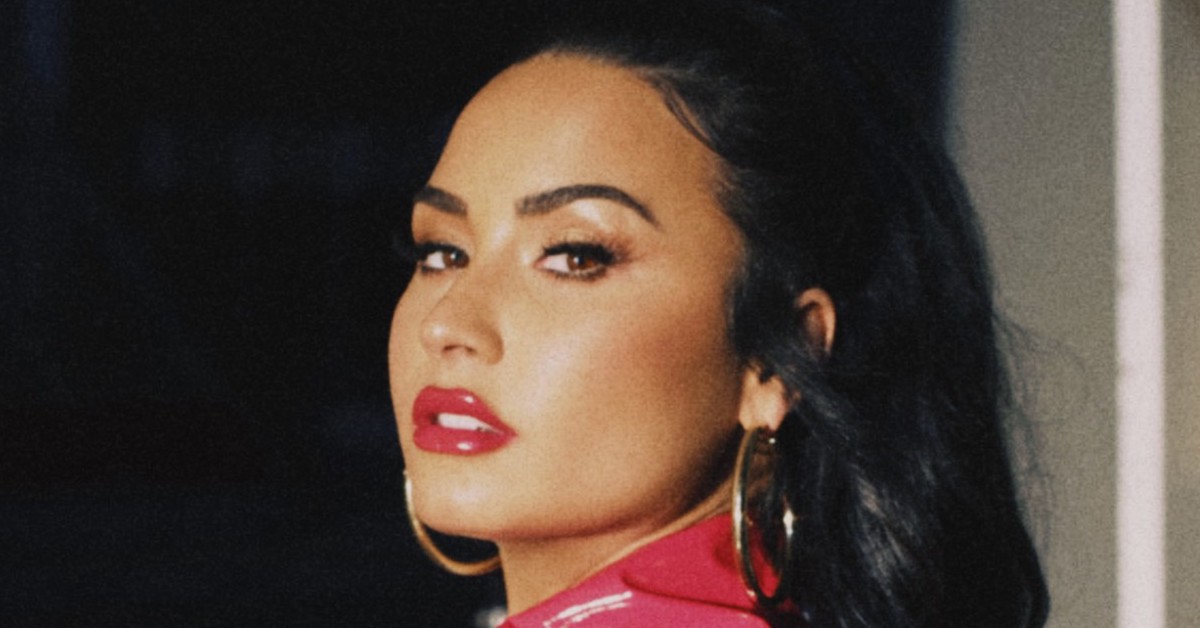Vocal Range: C3 – Bb5 – Eb7 (4 Octaves and a minor third)[1]https://therangeplanet.proboards.com/thread/348/demi-lovato
Vocal Fach: Light-Lyric Soprano
Vocal Rating: Singer-Vocalist
Longest Note: 16 Seconds
Analysis: One of the most admired vocalists of their generation, Demi Lovato has developed a reputation within the music industry for being a powerhouse vocalist. Their emotional song material, combined with an expansive and powerful chest voice has become a pivotal part of their artistry. They can belt up to Bb5, a rare feat for pop vocalists (and even professionally trained sopranos). Pair this with access to the whistle register, a surprising lower register, and impressive musical versatility, Lovato is one of the most impressive vocalists in their echelon of the industry today.
Although their lower register is where they are least comfortable and is the weakest part of their range, it has shown the ability to phonate fairly well down to C3, although true support dissolves well before that point. While they generally place these lower notes well enough to comfortably achieve them, the sound generated isn’t a truly “supported” one.[2]The tone and timbre of their voice noticeably shifts around G3-A3, an indication that the sound isn’t sitting on the breath. Regardless, Lovato’s ease here has tricked some into thinking that they’re a mezzo-soprano, and this sort of lower extension that has even briefly reached the second octave is an accomplishment for a soprano. Their middle voice often finds their natural, brighter, true soprano timbre, although they attempt to darken this sound by holding down their larynx. This also “cools” their voice somewhat, from its warmer tendencies (“Two Pieces”).
Where Lovato is most impressive but also the most inconsistent is when belting above C5. Though this part of their voice has been developing a healthier mix over time and generally sounds easy in the studio. While they are known to bring perhaps too much of their chest voice into these passages, through practice and coaching, this has begun to be less of a technical issue. After facing a vocal rough patch in 2014, they began vocal coaching which allowed them to blend their chest and head voice more effectively. Though they could still afford to lighten their sound even more,[3]For more about how Lovato approaches higher passages with too much chest: Sam Johnson, 5 Unrealistically Hard Vocals this is also a stylistic choice, as Lovato is a known fan of chesty vocalists like Christiana Aguilera and Kelly Clarkson. The sound here at its best is a bigger, heavier sound than other sopranos in Pop can muster, with Lovato demonstrating technical knowledge and practice by opening their mouth wide and keeping their tongue flat and pressed against their molars. These passages are demanding for any vocalist and can create fatigue when repeated extensively, which is the culprit behind some of this inconsistency.
While Lovato pulls too much chest voice into their sound, another technical issue is the forcing of air into their sound. This, subjectively, sounds like they have been taught (like too many) that support is using as much air as possible – when it’s actually the opposite. Breath support is holding air in your lungs back and using as little as possible to sustain your sound for as long as possible. This fundamental understanding may otherwise change how they approach their singing.[4]Complete Vocal Technique, Catherine Sadolin.
Lovato has been enamored with melisma since beginning their career, often singing circular, roulade style runs as opposed to straightforward ascending or descending forms (“Dancing With the Devil” [Live]), another influence of Aguilera. Lovato’s voice is naturally not very agile, as larger, heavier voices have trouble moving through their range, but Lovato is determined to execute them.[5]Light-lyric sopranos aren’t “large” or “heavy” voice types, but Lovato’s stylistic choice to sing with a darker, heavier sound creates the same problem that true … Continue reading
Lovato’s head voice and whistle register are underutilized, but Lovato has displayed some impressive vocals here. The whistle register is still a largely untapped frontier for Lovato, but as demonstrated in “Wildfire,” is piercing with a rolling vibrato. The falsetto and head voice still sound disconnected, but their stylistic choices with it create intimacy to increase the emotional vulnerability of their songs.
Overall, Lovato is a considerable albeit inconsistent vocalist, due to both technical shortcomings and demanding repertoire.
What do you think of Demi Lovato’s voice? Would you add anything to our analysis? Let us know by commenting below!
Demi Lovato’s vocal range is over four octaves, spanning C3 – Bb5 – Eb7.
Demi Lovato is a Light Lyric Soprano.
Demi Lovato can sing in four octaves, spanning C3 – Bb5 – Eb7.
Demi Lovato can belt up to Bb5 and sing up to Eb7 in the whistle register.
References
| ↑1 | https://therangeplanet.proboards.com/thread/348/demi-lovato |
|---|---|
| ↑2 | The tone and timbre of their voice noticeably shifts around G3-A3, an indication that the sound isn’t sitting on the breath. |
| ↑3 | For more about how Lovato approaches higher passages with too much chest: Sam Johnson, 5 Unrealistically Hard Vocals |
| ↑4 | Complete Vocal Technique, Catherine Sadolin. |
| ↑5 | Light-lyric sopranos aren’t “large” or “heavy” voice types, but Lovato’s stylistic choice to sing with a darker, heavier sound creates the same problem that true heavy voices have. |




